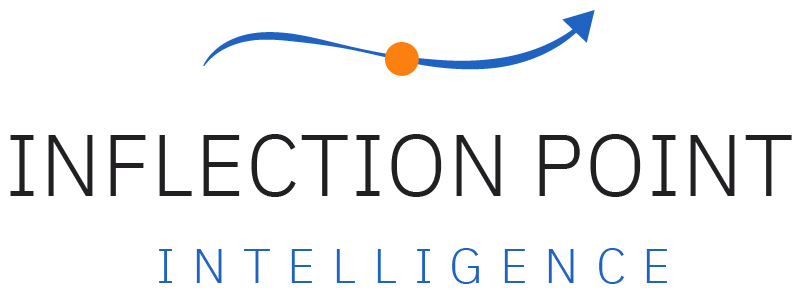Can Dubai absorb the influx of Chinese family offices?
According to a recent FT article, an increasing number of wealthy Chinese individuals are redirecting their family office ambitions away from established hubs such as Singapore and toward the Gulf — notably Dubai and Abu Dhabi — driven by more accessible residency requirements, favourable tax regimes, and a more permissive stance on private wealth migration.
The article reports that Dubai’s offshore financial centre had around 600 family office entities at the end of 2023, rising to about 1,000 by mid‐2025
Prashant Tandon of Lighthouse Canton’s UAE business made a striking comment – “such is the influx … that there is a shortage of financial professionals who speak Chinese”.
And so there is an acute workforce question. It’s one thing for a jurisdiction to invite capital in and to adopt a friendly regulatory regime, but it’s quite another to scale the “people infrastructure” that a genuine family office ecosystem demands. Multi-disciplinary teams spanning investment advisory, governance, risk, operations, tax and structuring, philanthropic giving, family governance coaching, and cultural/interpersonal fluency are all necessary parts of a successful ecosystem, and many of them will need to include Chinese speakers.
Key questions arising are:
- Does Dubai currently have the depth of talent in the family office domain (not just general private wealth) to meet the needs of a large and growing client base shifting from Asia and beyond?
- Even if there are experienced private wealth advisers, are there enough professionals conversant in Chinese (or indeed other languages), familiar with Asiansourced wealth family dynamics, cross-border planning, and the governance/legacy issues typical of sizeable family offices?
- Are the service providers (law firms, accountants, family office consultants) in Dubai mature enough that they are fully geared not just to set up family offices en masse, but to service them sustainably (reporting, risk management, operational best practice, succession planning)?
- Will the speed at which capital is flowing into Dubai place strain on the ecosystem such that quality may be compromised (e.g. setting up shells but lacking operational substance, inadequate talent, language/cultural gaps)?
- How will local talent development keep up – will Dubai need to attract expatriate specialists or invest heavily in training the next generation of professionals with the family office mindset, not just general wealth management skills?
The role of education
This is where the education piece becomes particularly relevant. The Henley Family Office Program offered by Inflection Point Intelligence (IPI) is designed for professionals who aim to service or support family offices: whether internal family office staff, external advisers (lawyers, accountants, consultants), or service providers (trustees, governance advisers).
How does the program’s curriculum help?
- Bridging the talent gap – The program provides a structured curriculum covering all aspects of how a family office works. For a market such as Dubai where talent is being stretched, having certified or credentialed professionals means a quicker path to building capability.
- Widening the hiring pool – Identifying Chinese-speaking finance professionals and educating them in how family offices operate is quicker and easier than teaching non-Chinese speaking family office professionals to speak Chinese.
- Global standardisation – Family offices increasingly demand sophistication akin to institutional asset management or endowment governance. The Henley/ IPI program can help service provider firms in Dubai align with best practice standards (reporting, governance, compliance) that clients expecting Asia/US/European-style servicing will recognise.
- Cultural and operational language – While language fluency (Chinese etc.) is one issue, another is being attuned to global family office norms: e.g. how Asian-source families think about governance vs Middle East families, how crypto-wealth families differ from traditional industrial family wealth, how philanthropy, legacy, and succession interplay. An education program can build that mindset rather than simply providing technical skill in a particular function.
- Service provider differentiation – For firms in Dubai (or entering Dubai) wanting to establish themselves as credible service providers to family offices, having team members with formal family office education may become a differentiator. As competition intensifies, credentials will matter.
- Scaling HR beyond hire-and-hope – If Dubai’s market is expanding rapidly, relying solely on hiring experienced global talent may be unsustainable (cost, availability, fit). Local talent development via programs like Henley/ IPI gives a pathway to build a bench of professionals tuned to the local ecosystem but globally aware.
Implications
Dubai’s ambition to become a major family office hub is clearly well underway. However, the heavy lifting lies not merely in attracting capital or granting golden visas, but in creating a full ecosystem of talent, operational infrastructure and service provider sophistication. The article’s mention of a shortage of Chinese-speaking wealth professionals is a red flag — symbolism of a broader challenge.
From a strategic vantage point, service providers (law firms, multi-family office boutiques, trustees, risk and operations firms) that recognise this gap now are well advised to act. They should ask themselves: “Do we have the right people? Are they trained for family office dynamics? Can we deliver multi-jurisdictionally and multi‐culturally? Are our governance, reporting, risk infrastructure up to the expectations of incoming families?”
In this context, the Henley/ IPI program becomes more than “nice to have”. It becomes a key part of the talent development toolkit. As firms in Dubai gear up — recruiting, training, localising, scaling — embedding family office-specific education offers a way to operationalise the “people readiness” pillar of the hub strategy.
For the families themselves relocating to Dubai, the question remains: will the local service infrastructure keep pace with your needs? For advisers and service providers, the question is: will your HR, your teams, your processes be ready when the next wave of Asian and crypto-wealth families deploy substantial capital into the region?
If the answer is not yet clearly “yes”, then now is the moment to invest in the human resource dimension. Because in the world of family offices, talent and service infrastructure will often be the difference between “set-up done” and “value delivered over generations”.
The Henley Family Office Program carries a Certificate of Completion from Henley Business School. It is available online, on demand, 24/7.
Each module features one or more expert lecturers with real world experience in the family office industry. Meet the faculty here.
The 12 core modules of the Henley Family Office Program are:
1 Introduction to the Family Office
2 Succession & Estate Planning
3 Tax Considerations
4 Structuring & Set-Up
5 Governance
6 Portfolio Management
7 Operations, Technology & Administration
8 The Private Bank Relationship
9 Non-Financial Services
10 HR Management
11 Philanthropy, Foundations & Impact Investing
12 Risk Planning & Crisis Management
For further information or to chat with us, please contact Lisa So at lisa.so@ipi-edu.com.

